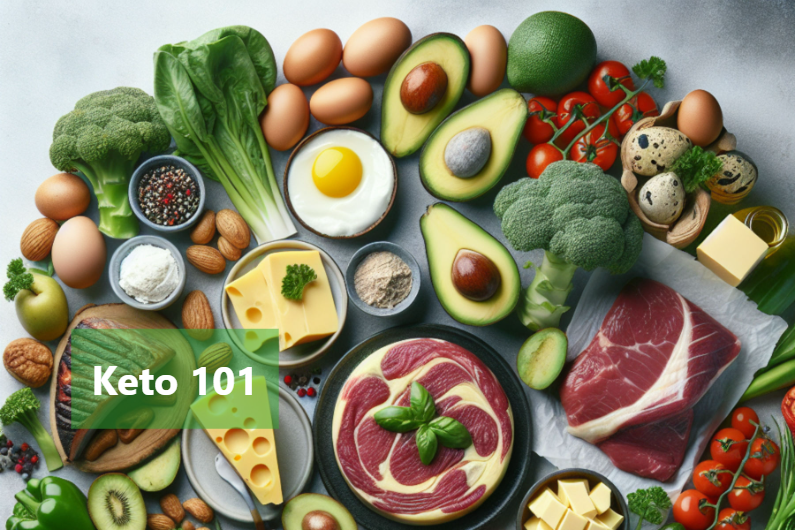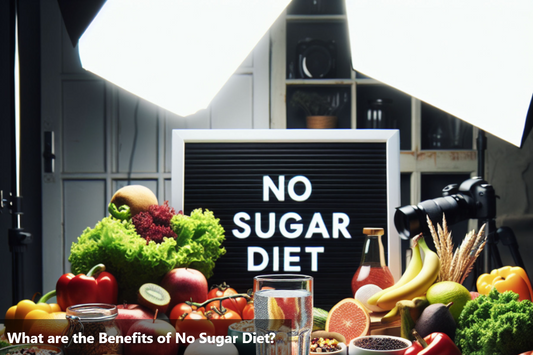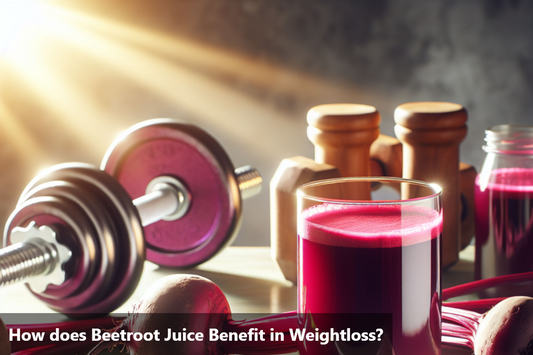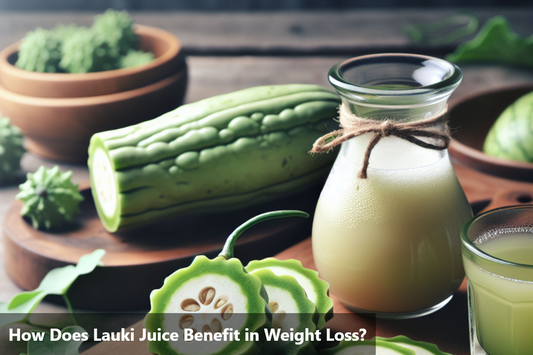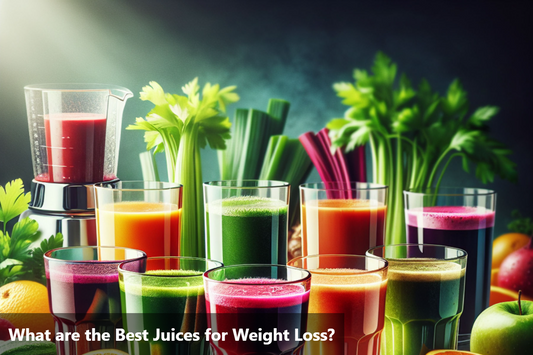The keto diet is a way of eating that is high in fat and low in carbs. The goal is to get your body to burn fat for energy instead of carbs. This metabolic state is called ketosis and it happens when your liver makes molecules called ketones to use as fuel when carbs are low.
Going keto has been linked to some great benefits like losing weight, better blood sugar control, and improved mental focus. However, some myths about keto also cause lots of confusion. It's key to look past the hype and understand the real science.
When done right, keto can optimize your health in so many ways. But it takes knowing the facts to separate truth from fiction. Learning how keto impacts your body can help you decide if it's the right dietary approach for your goals and lifestyle.
Understanding the Keto Diet
The keto diet focuses on a high-fat, adequate-protein, low-carbohydrate macronutrient ratio. The goal is to transition the body into a state of ketosis, where it burns fat for fuel instead of glucose. This metabolic state promotes weight loss and can have positive effects on energy levels and mental clarity. The typical foods consumed on a keto diet include healthy fats like avocados and olive oil, protein sources such as meat and eggs, and low-carb vegetables like leafy greens and cauliflower. It's important to carefully control carbohydrate intake to maintain ketosis, and monitoring macronutrient ratios is crucial for success on the keto diet.
Transitioning to the Keto Diet in Steps
Gradually Reduce Carbs and Add Healthy Fats Start by slowly eating less carbs and adding more healthy fats and a moderate amount of protein to reduce the impact of "keto flu."
Plan Your Meals
Focus on including lots of non-starchy vegetables, good quality protein like fatty fish and grass-fed meat, and healthy fats like avocados and olive oil.
Try out keto-friendly recipes such as cauliflower rice stir-fry, zucchini noodle spaghetti, or avocado and bacon salad to keep your meals interesting and enjoyable.
Ensure Proper Hydration and Mineral Intake
Drink lots of water and consider adding sources of sodium, potassium, and magnesium to your diet or supplements to help your body adjust to using ketones for energy.
Be aware of any possible gaps in the nutrients and consider consulting a healthcare professional or a dietitian.
Listen to Your Body Remember that everyone's experience with the keto diet is different. Listen to your body, make changes as needed, and focus on overall health and well-being through this lifestyle change.
What Makes Something Keto?
When we check if a food or recipe is good for the keto diet, we look at the specific things that go with this way of eating.
First, the food needs to have a low amount of carbs. This helps the body to go into a state of ketosis. That means the food should not have a lot of sugars and starches, as these can quickly raise blood sugar levels. Also, keto-friendly foods need to have a lot of fat. This is because the diet suggests replacing carbs with healthy fats, which become the main source of energy for the body. Foods like avocados, nuts, and certain oils are good examples.
Additionally, the food needs to have a medium amount of protein. While protein is good for keeping muscles healthy and helping them grow, eating too much can stop ketosis. So, it's important to find a balance and choose foods with the right amount of protein. By thinking about these things, people on the keto diet can pick foods and recipes that help them meet their nutrition targets and improve their overall health.
Can a Keto Diet Plan Really Help You Lose Weight?
The ketogenic diet, more commonly known as the keto diet, has gained significant popularity in recent years as a potential weight loss solution. This low-carb, high-fat diet aims to put the body into a state of ketosis, where it burns fat for energy instead of carbohydrates. While research on the long-term effects of the keto diet is still ongoing, many people have reported successful weight loss and improved health markers after adapting to this eating pattern.
By significantly reducing carbohydrate intake and increasing fat consumption, the keto diet can lead to rapid weight loss in the initial stages. However, it's important to note that sustainable weight loss is ultimately achieved through a balance of healthy eating, regular physical activity, and a realistic approach to food choices. If you're considering trying the keto diet for weight loss, it's advisable to consult with a healthcare professional or a registered dietitian to ensure it's a safe and suitable option for you.
Downsides of the Keto Diet
The ketogenic diet has gained popularity due to its ability to promote weight loss and improve certain health markers. However, there are a few potential downsides to consider before starting this diet.
Keto Flu: Some people may experience flu-like symptoms when they first start the keto diet, including fatigue, headaches, and irritability. This is often referred to as the "keto flu" and is the body's response to adjusting to a low-carbohydrate intake.
Nutrient Deficiencies: Since the keto diet restricts the intake of fruits, starchy vegetables, and grains, it can lead to deficiencies in certain vitamins, minerals, and fiber. It's important to carefully plan meals to ensure adequate nutrient intake.
Digestive Issues: Constipation is a common complaint among people on the keto diet due to the low fiber content of the diet. It's essential to incorporate low-carb, fiber-rich foods to mitigate this issue.
Sustainability: Some people find it challenging to maintain the strict carbohydrate restrictions of the keto diet in the long term, leading to difficulty in adhering to the diet.
Ketoacidosis Risk: Individuals with diabetes who are taking medication, particularly insulin, should be cautious when following the keto diet to avoid the risk of ketoacidosis, a potentially dangerous condition.
Social Challenges: Eating out or attending social events can be challenging while following the keto diet, as many traditional dishes and restaurant options are high in carbohydrates.
It's essential to weigh the potential downsides of the keto diet against the benefits and determine whether it is a suitable dietary approach for your individual needs and lifestyle.
Keto FAQs:
1. Is it necessary to count calories on a keto diet?
While some people find success with counting calories on keto, the focus is mainly on restricting carb intake to achieve ketosis.
2. What are the main benefits of a keto diet?
Some of the primary benefits of a keto diet include weight loss, increased energy levels, and improved mental clarity.
3. Can I eat unlimited amounts of protein on keto?
Consuming excessive amounts of protein can potentially interfere with ketosis, so it's important to moderate protein intake while on a keto diet.
4. Are there any side effects of starting a keto diet?
Some people may experience temporary side effects, often referred to as the "keto flu," which can include fatigue, headaches, and irritability as the body adjusts to using ketones for fuel.
5. How long does it take to enter ketosis?
The time it takes to enter ketosis can vary from person to person, but following a strict low-carb diet can typically lead to ketosis within a few days to a week.
This Blog post is an initiative by DiabeSmart, to provide accurate and Nutritionist / Doctor approved information related to Diabetes. DiabeSmart is India's first Food brand designed specifically for Diabetics, that has been clinically tested on Diabetics and Pre-Diabetics to deliver 55% - 70% lower Sugar spikes. DiabeSmart is part of Lo! Foods - India's leading brand for Everyday Functional Health foods.

